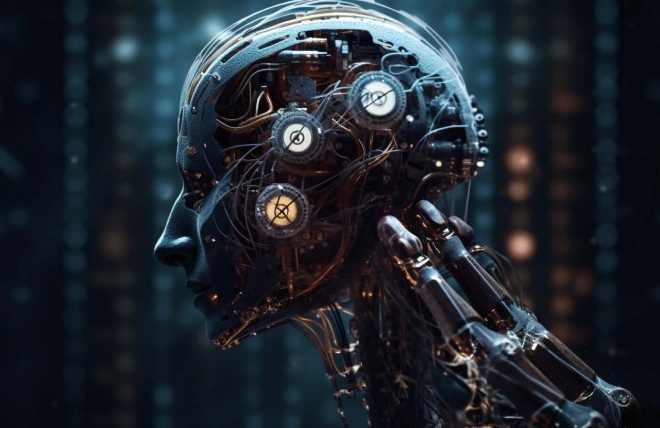The Future of Work with AI
Exploring the Ethics and Implications of AI in the Workplace
Building a Fair and Equitable Future of Work with AI
Artificial intelligence (AI) has become an increasingly integral part of the modern workforce. From automating routine tasks to optimizing complex decision-making processes, AI has the potential to transform the way we work. However, this technological advancement also raises ethical concerns that must be addressed to ensure a fair and equitable future of work.
The Potential Benefits of AI in the Workplace
The potential benefits of AI in the workplace are numerous. The use of AI can increase productivity and efficiency, improve accuracy and precision, and reduce errors. In addition, AI can help businesses save costs by automating repetitive and mundane tasks, allowing employees to focus on more strategic and creative work.
The Ethical Considerations of AI in the Workplace
As with any technology, there are ethical considerations associated with the use of AI in the workplace. One of the most significant concerns is the potential for discrimination and bias in hiring and employment decisions. AI algorithms may inadvertently perpetuate existing biases in the data sets used to train them, leading to unfair and discriminatory outcomes for certain groups.
Another ethical consideration is privacy. AI systems may collect and analyze vast amounts of data from employees and customers, potentially infringing on their privacy rights. Additionally, the use of AI in surveillance and monitoring of employees can raise concerns about workplace surveillance and employee autonomy.
Finally, the use of AI in the workplace can lead to job displacement and loss of employment opportunities for workers. This is particularly true for industries where routine and repetitive tasks can easily be automated. While AI can create new job opportunities and roles, it is important to ensure that workers are reskilled and trained to take advantage of these opportunities.
Mitigating the Negative Impacts of AI on the Workforce
To mitigate the negative impacts of AI on the workforce, it is important to develop ethical standards and guidelines for AI use in the workplace. This includes ensuring that AI algorithms are transparent and explainable, and that data sets used to train these algorithms are unbiased and representative.
Additionally, investing in employee training and reskilling programs can help workers adapt to new roles and opportunities created by AI technologies. Creating new job opportunities that work alongside AI systems, rather than replacing them, can also help mitigate the negative impact of AI on the workforce.
Conclusion
AI has the potential to revolutionize the way we work, but it is important to consider the ethical implications of this technology. By developing ethical standards and guidelines, investing in employee training and reskilling, and creating new job opportunities, we can ensure that the future of work is fair and equitable for all. As we continue to integrate AI into the workforce, it is essential that we remain vigilant in monitoring its impact and addressing any ethical concerns that arise.
We need to ensure that AI is not just a tool for a few, but a force for many.
Faq
- Q: What are the potential benefits of AI in the workplace?
A: The potential benefits of AI in the workplace include increased productivity and efficiency, improved accuracy and precision, and reduced errors. AI can also help businesses save costs by automating routine tasks and allowing employees to focus on more strategic work. - Q: What are some ethical considerations of AI in the workplace?
A: One significant concern is the potential for discrimination and bias in hiring and employment decisions. AI algorithms may perpetuate existing biases in data sets used to train them, leading to unfair outcomes for certain groups. Privacy is also a concern, as AI may collect and analyze large amounts of data from employees and customers. Additionally, the use of AI in surveillance and monitoring of employees can raise concerns about workplace surveillance and employee autonomy. - Q: How can we mitigate the negative impacts of AI on the workforce?
A: To mitigate negative impacts, we can develop ethical standards and guidelines for AI use in the workplace. We can ensure that AI algorithms are transparent and explainable, and that data sets used to train these algorithms are unbiased and representative. Investing in employee training and reskilling programs can help workers adapt to new roles and opportunities created by AI technologies. Creating new job opportunities that work alongside AI systems, rather than replacing them, can also help mitigate the negative impact of AI on the workforce.
Pros and Cons
Pros:
- Increased productivity and efficiency
- Improved accuracy and precision
- Reduced errors
- Cost savings through automation of routine tasks
- Creation of new job opportunities and roles
Cons:
- Potential for discrimination and bias in hiring and employment decisions
- Privacy concerns regarding the collection and analysis of data
- Job displacement and loss of employment opportunities for workers
- Increased surveillance and monitoring of employees
- Dependence on technology leading to skill gaps and loss of autonomy

